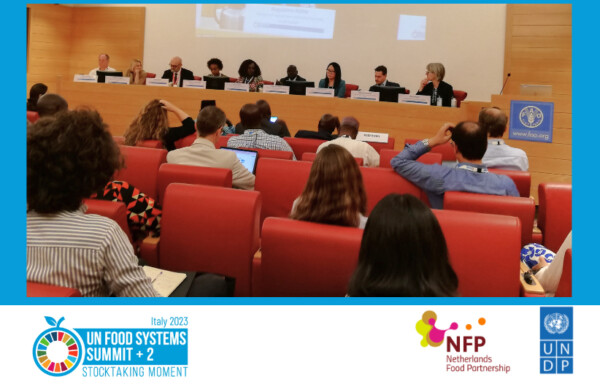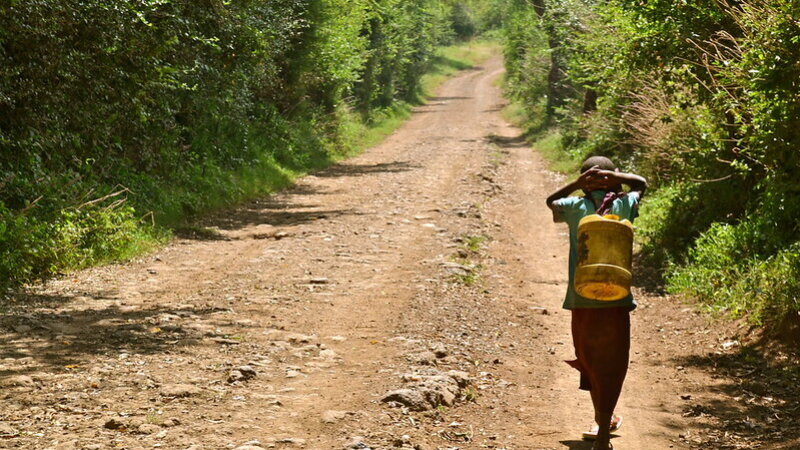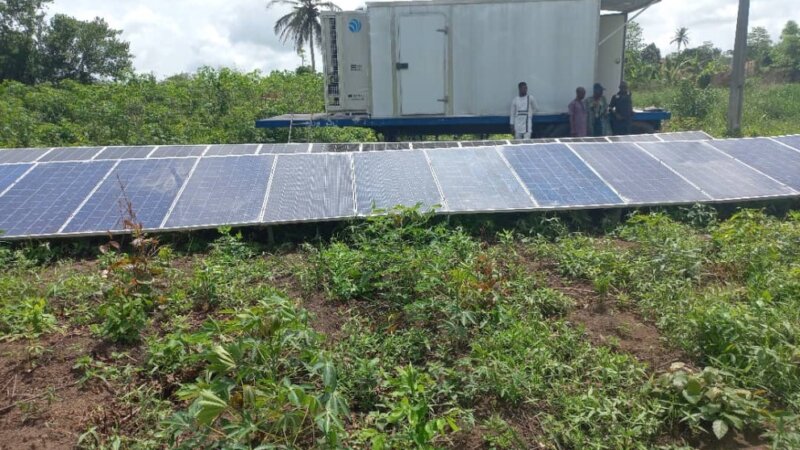Multi-Stakeholder Collaboration for Food Systems Transformation: From Concepts to Action

Multi Stakeholder Collaboration is essential for the successful implementation of national pathways for food system transformation. While the relevance of bringing stakeholders together in new ways to ensure transformative change is recognized, it is easier said than done! With this in mind, during UNFSS2023 in Rome, UNDP, FAO, UNEP, GAIN, NFP, Foresight4Food Initiative and UN Food Systems Coordination Hub hosted a dedicated side-event about this important topic.
The side-event brought to the stage practical insights from #kenya , #nigeria , #southsudan , #vietnam , and #switzerland. Food systems experts from these five countries shared their experiences in engaging stakeholders across sectors and scales at both local and national levels, and in building a joint vision towards collective action plans.
Highlights:
In all five countries, mechanisms have been developed to facilitate the dialogue with and the joint planning by in-country stakeholders. This is part and parcel of the design and implementation of the national food systems pathways. In each country the mechanisms are different, varying from a platform, working groups, a citizen assembly, to a series of dialogues.
All countries developed ways of working to link the national to the subnational level, including to cities. In many countries, multi-sectoral consultations took place at decentralised levels. An illustrative video from South Sudan showed community based food systems dialogues. Food systems pathways should be localized by engaging the local government, as they are key in this transformation.
Inclusiveness is a key principle. Multiple panelists voiced a call to reach out to and engage communities that are often forgotten, and to bring them into the dialogue.
The food system is more than the agriculture sector. Engaging stakeholders from the broader food system, such as consumers, universities, city based actors, is necessary to create this broader perspective.
Leadership for Multi Stakeholder dialogues or collaboration may vary, in some cases the public sector is leading, in other cases a civil society organisation. The role of universities may be a supportive one, including when particular toolkits are being used.
Multi Stakeholder Collaboration is not a seamless process, it comes with challenges related to diverging interests and power imbalances. These should be managed. It is important to be clear about a collective goal.
Foresight is a tool that governments, private sector and civil society can jointly use to better understand future opportunities and risks in food systems, to explore and reimagine the future and adapt. It contributes to joint sensemaking of everyone’s position in the system, to bring stakeholder views together and to explore what emerges in terms of a common perspective.
Another extensive set of tools can be found in the ‘Rethinking our Food Systems’ guide published by UNEP, UNDP and FAO. See link.
Full Report
Multi-Stakeholder Collaboration for Food Systems Transformation: From Concepts to Action.
Further reading:
Kenya. FoSTr Programme by Foresight4Food and Wageningen University: https://foresight4food.net/news/
Nigeria. Global Alliance for Improved Nutrition. https://www.gainhealth.org/impact/countries/nigeria
South Sudan. State level food systems resilience pathways https://www.nfpconnects.com/conversations/reports-out-food-systems-resilience-pathways-for-two-states-in-south-sudan
Switzerland. Sustainable food systems agenda. https://www.blw.admin.ch/blw/en/home/international/dak_nachernae.html
Vietnam. Update on national pathway. https://www.unfoodsystemshub.org/docs/unfoodsystemslibraries/national-pathways/vietnam/decision-300-nap-fst-vietnam-eng_12-07-2023.pdf?sfvrsn=d2d713f_1
‘Rethinking our Food Systems’ guide published by UNEP, UNDP and FAO. See link.
The MSP guide: how to design and facilitate multi-stakeholder partnerships https://research.wur.nl/en/publications/the-msp-guide-how-to-design-and-facilitate-multi-stakeholder-part-4
Read NFP's summary article about the UN FSS+2 : https://www.nfpconnects.com/co...
Authors

Nicole Metz
Senior Knowledge Broker - Netherlands Food Partnership

Mark Fonseca Rendeiro
Communications Officer - NFP





